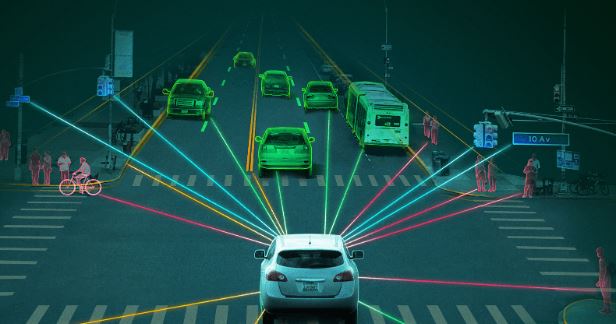There was a time when autonomous vehicles seemed like something from a science fiction story. It was hard to imagine that there could ever be a time that self-driving cars would actually exist, and if they did, it would be in the far-off future.
But, surprise, surprise, the future is now. Or right around the corner, anyway.
Autonomous vehicles, or for now, autonomous features, are coming. We share the road with some of the newest iterations now. Self-driving cars have the potential to change the way we approach transportation. The hope is that autonomous vehicles will make travel more efficient, safer, and more accessible in this new era of transportation innovation.
Eliminating Risks Through Autonomous Vehicles
Discussions about autonomous vehicles always include doubts about their safety. But, the aim is for autonomous vehicles to eliminate many of the threats we typically face when driving. Some of the things that self-driving cars will eliminate are the following:
- Self-driving cars may potentially eradicate drunk driving.
- Autonomous vehicles will not experience fatigue, so that drowsy driving could be eliminated.
- A vehicle that drives itself will not get distracted, which is the cause of most car accidents.
- Autonomous vehicles are designed to obey traffic laws, meaning they will not drive too fast for the conditions, will not tailgate the car in front of them, and will not ignore traffic signals.
- Slow reaction time could be eliminated because sensors and cameras would pick up on what is happening in every direction and would react more quickly than a human without the benefit of a 360-degree view would be able to.
Many of automobile accidents that occur are due to human error, according to the car accident lawyers of Mickelsen Dalton. Autonomous vehicles could be fundamental in eliminating a host of injuries and traffic-related deaths.
Cars Talking to Cars
One of the exciting ideas about autonomous vehicles is that cars will be programmed to communicate with one another. The technology that makes car-to-car communication possible could benefit travelers in various ways. For one, consider lane changes.
When driving ourselves, we signal that we are changing lanes and hope that the other cars traveling nearby will acknowledge our signal and take appropriate measures to stay safe. In an autonomous vehicle, on the road with other autonomous vehicles, the other cars would know that a lane change is about to occur so that they would make adjustments accordingly.
If there is an obstacle or pothole ahead, the car that spots it would signal to other vehicles that there is a hazard coming up, so the vehicle is prepared to react appropriately, to reroute or dodge the issue. By communicating with each other, accident rates should drop considerably.
Autonomous Cars Promote Efficient Travel
Another benefit of autonomous vehicles is that they will significantly affect the efficiency of travel. Because the cars communicate with each other, they will determine the best routes to avoid travel congestion when possible.
Potentially, autonomous vehicles could travel in packs or platoons. This driving in clusters would help with wind resistance, in turn boosting fuel efficiency.
Parking issues and the frustration that accompanies them could be a thing of the past. Cars that drive themselves could head to a designated parking area rather than having the driver waste time continuously circling the block, hoping that a spot will open up. This could be the answer to some urban traffic congestion issues as well.
Self-Driving Cars Could Make Transportation More Accessible
People who are unable to drive could be provided with much more independence once self-driving cars become prevalent. Imagine the benefits to the elderly, people who are not comfortable with night driving, and folks with disabilities who would not have to depend on others to get where they want to go. Safe, reliable transportation would expand their mobility and allow them to have far greater independence.
Car-sharing services could improve transportation in areas that are underserved by public transit, for instance, in rural areas where even Ubers are nonexistent. Autonomous vehicles could ensure that residents of these areas could access healthcare and other essential services without having to own their own vehicles.
Changing the Way We Approach Transportation
Self-driving vehicles will change the way we approach travel, commuting, errands, and all forms of transportation. Safety measures, efficiency, and increased independence through accessibility will benefit us all. We are not there yet, but hopefully, autonomous cars will play a beneficial role in the future of travel.
We look forward to the important innovations and the significant advantages that will come with cars that can drive themselves.
Go Home







